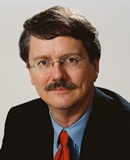One of the best-attended sessions at the Council on Foundations conference this week was on foundation involvement in the global development agenda for the period 2015-30. The standing room only crowd was urged by panellists from the Hilton and Rockefeller Foundations, the Foundation Center and the World Bank to get involved both in the framing of the goals and in their execution over the coming decade and a half.
From MDGs to SDGs
Ed Cain, vice president of the Hilton Foundation and himself a former United Nations official, recounted how the current eight ‘Millennium Development Goals’ (MDGs) were put together in the year 2000 by a relatively small group of technocrats, led by Mark Malloch Brown of the United Nations Development Program (UNDP). In effect, they ‘compacted’ the various parallel poverty reduction and well-being movements of the 1990s, for example education for all, child survival, and social inclusion. The MDGs were a robust, unexpected social marketing success, providing a manageable, easily referenced framework for the global effort to reduce extreme poverty. The MDGs shaped how donors funded, how developing country governments structured their national strategies, how NGOs organized their programmes, and how watchdog organizations held authorities to account.
These MDGs were due to be accomplished, or at least to expire, in 2015. Progress on the goals has been mixed. They have organized the global development effort and given it an overall system of targets, but as 2015 nears, it is clear that the work is not yet done.
Thus over the last two years attention has begun to shift towards the next 15-year period, and the crafting of the ‘post-2015’ development goals. Given the importance of the MDGs in past years, this time there is a great deal of attention on how the next round of goals is being crafted. The process is much more consultative, but also more congested with actors, from UN agencies to national governments to civil society coalitions.
What seems to be emerging is that the goals for the 2015-30 period are likely to be called the ‘Sustainable Development Goals’, and that they will place nearly equal emphasis on finishing the MDG agenda of poverty reduction on the one hand, and on sustainability and environmental concerns on the other. A third cluster of goals around good governance is being debated, but it is not certain whether they will stay on the agenda. The goals will be hammered out over the next year, for approval at the UN General Assembly meeting in New York in September 2015. Currently, in the June 2014 ‘zero draft’ document, there are 17 goals, which will probably be slimmed down to a more manageable 12 or so over the next year. While the MDGs were mostly about developing countries, the SDGs are intended to cover all countries.
How have foundations engaged with these global goals?
Foundation funding for MDG priorities has been significant. Foundation Center data indicates that 44 per cent of international support from the largest 1,000 US foundations in 2012 went to issues targeted by the MDGs, totaling $2.6 billion. Foundations have made particularly significant investments in HIV/AIDS, poverty reduction and child survival.
On the other hand, foundations were not actively involved in the forging of the MDG agenda in 2000, and most foundations did not explicitly adopt the MDGs as an organizing framework in the way that multilaterals and bilaterals did. The European Foundation Centre endorsed the MDGs in 2005, but it was not entirely clear what this endorsement meant in practical terms.
As for the Council on Foundations, Hilton’s Ed Cain was told as he joined the CoF global committee around the midpoint of the MDG period, ‘CoF doesn’t do the MDGs, we’re content-neutral.’ CoF’s global focus was more on helping grantmakers understand the rules and mechanics of international grantmaking. While certain individual foundations were deeply invested, particularly in specific MDGs, foundations have not been strongly engaged collectively in the global development agenda.
This is a missed opportunity, because some of foundations’ strongest comparative advantages – being able to combine a long-term view with short-term dynamism – would be very useful in both the articulation and the implementation of the development goals agenda.
Foundations and the SDGs – what entry points?
In May, the Hilton Foundation has awarded $1 million to UNDP and the Foundation Center to improve the effectiveness of philanthropy’s contributions to the post-2015 development agenda, and to enable government and the UN system to effectively engage with a wider range of stakeholders, including civil society and the private sector. The Ford Foundation has added $500,000 to this effort, and other foundations are invited to join in.
The CoF panel identified a number of entry points for foundation involvement:
• the crafting of the goals themselves (though this is already a crowded field);
• participation in a foundation ‘collaboration advisory group’, which looks at how foundation funding can be used smartly to help advance the goals;
• funding research, particularly on how the goals can be successfully implemented;
• funding the involvement of civil society organizations in the SDG process at the country level;
• funding projects promoting awareness and support of the SDGs in industrialized countries.
Brad Smith of the Foundation Center made a strong plea for data from foundations, starting with detailed information on grants made within the framework of the MDGs and SDGs. Beyond these grants, foundations can also share information on their strategies, programmes, research, evaluations and landscape assessments. These will be of value to other foundations but also to the broader community working on these goals. ‘If foundations improve our data tracking capacity,’ Smith noted, ‘this will allow us to produce significant aggregated data, and sit at the table in dialogue with other major actors.’
The turnout at the CoF session indicates a strong interest on the part of the CoF membership in this important global issue, and bodes well for the building of a robust foundation collaboration in support of the new Sustainable Development Goals.
Those foundations interested in getting involved in this collaborative can contact Ed Cain at the Hilton Foundation or Karolina Mzyk at UNDP (Karolina.mzyk@undp.org).
Peter Laugharn is executive director of the Firelight Foundation.






Comments (0)